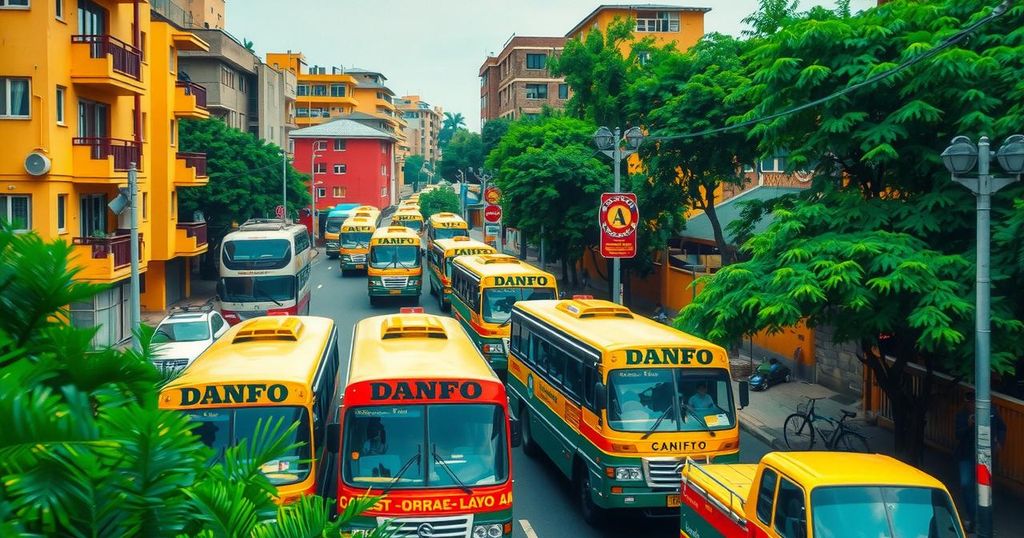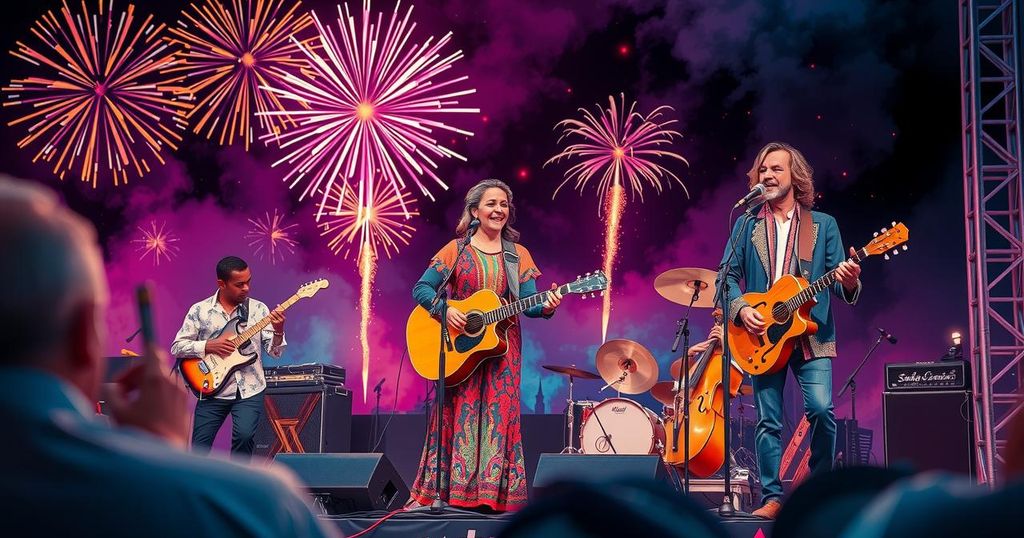‘My Father’s Shadow’ at Cannes: A Stirring Reflection of Nigeria’s Past
Akinola Davies Jr.’s **My Father’s Shadow** is the first Nigerian film at Cannes, vividly depicting a pivotal day in Nigeria’s history via the eyes of two boys amidst national elections. The film offers an emotional depth exploring the father-son relationship against the backdrop of political unrest, showcasing unique storytelling and intimate cinematography.
Akinola Davies Jr.’s debut film, My Father’s Shadow, marks a vital moment in cinema by being the first Nigerian film screened at the Cannes Film Festival. Set against the backdrop of Nigeria’s turbulent political landscape on June 12, 1993, the film intertwines personal and national narratives, showcasing the struggles as the country embarks on its first election following a coup in the early 1980s. The story centers around two young boys, Akin and Remi, as they navigate a day that begins mundanely in their Lagos home but soon takes unexpected turns.
Davies Jr. establishes a rich, lyrical atmosphere from the very beginning, working closely with cinematographer Jermaine Edwards. Their collaboration imbues the scenes with the vivid imagery of childhood innocence. The film possesses a poetic quality akin to Raven Jackson’s _All Dirt Roads Taste of Salt_ and the impressionistic techniques of groundbreaking Black filmmakers like Julie Dash. Subtle sounds of nature and community bustle subtly enhance the story’s tender tone.
However, all is disrupted when their father, Folarian—an emotionally complex figure portrayed by Sopé Dirisu—enters. His stern approach casts a shadow over the boys, leading to an unexpected revelation about family dynamics. Premiered in the Un Certain Regard section at Cannes, My Father’s Shadow serves not only as a personal autobiography reflecting Davies Jr.’s own upbringing but also as a broader commentary on Nigerian society during a pivotal era.
The film draws viewers into Akin and Remi’s universe while simultaneously prompting reflections on strained father-son relationships against the backdrop of national upheaval. Its non-linear narrative, while potentially challenging for some, resonates deeply for others, echoing the works of filmmakers like Ramata-Toulaye Sy.
After some coaxing, their father decides to take Akin and Remi into Lagos, aiming for a day that might bridge their emotional divide. Their journey on a danfo, a mini-bus service, introduces them to vibrant characters and the politically charged environment of the city. As the boys experience this bustling realm, the city’s political climate and the tragic stories of violence, such as the Bonny Camp massacre, gain deeper significance.
Throughout, the film oscillates between fun, mundane moments and more striking insights into their father’s past. The narrative often feels fragmented, leaving viewers wanting more. Nevertheless, the intimate scenes between Folarian and his sons elevate the film, revealing the complexities of familial bonds. Dirisu captures Folarian’s internal conflicts with a performance that expresses both restraint and raw emotion, making the character believable despite his flaws.
As the day progresses, the film’s tone shifts from leisurely to increasingly tense. With the election count drawing to its climax, the streets of Lagos transform into a scene of impending chaos as soldiers patrol and curfews loom. The climax, escalating to violence following the election results, aligns with historical truths and resonates deeply within the narrative.
Omar Guzman Castro’s skillful editing brings urgency to these moments, reminiscent of the meaningful reflections found in the poetry of Chris Abani, who experienced political oppression firsthand. _My Father’s Shadow_ juxtaposes the disintegration of national hope with the fragile strands of familial relationships, demonstrating Davies Jr.’s growing craftsmanship as a filmmaker.
As a debut, My Father’s Shadow not only captures a unique moment in Nigerian cinema but also crafts a poignant narrative built from the threads of personal history and collective trauma. With this film, Davies Jr. signals the arrival of a powerful voice in storytelling, one that promises more moving explorations of culture and identity in the future.
In conclusion, **My Father’s Shadow** emerges as a landmark in cinema, uniquely intertwining personal tales with Nigeria’s fraught political history. The film provides an intimate look into father-son dynamics amidst national turmoil and showcases Akinola Davies Jr.’s inventive storytelling and directorial promise. By blending lyrical visuals with a poignant narrative, it reflects the rich tapestry of both family life and the broader societal issues, marking a significant moment for Nigerian representation in the film industry.
Original Source: www.hollywoodreporter.com




Post Comment